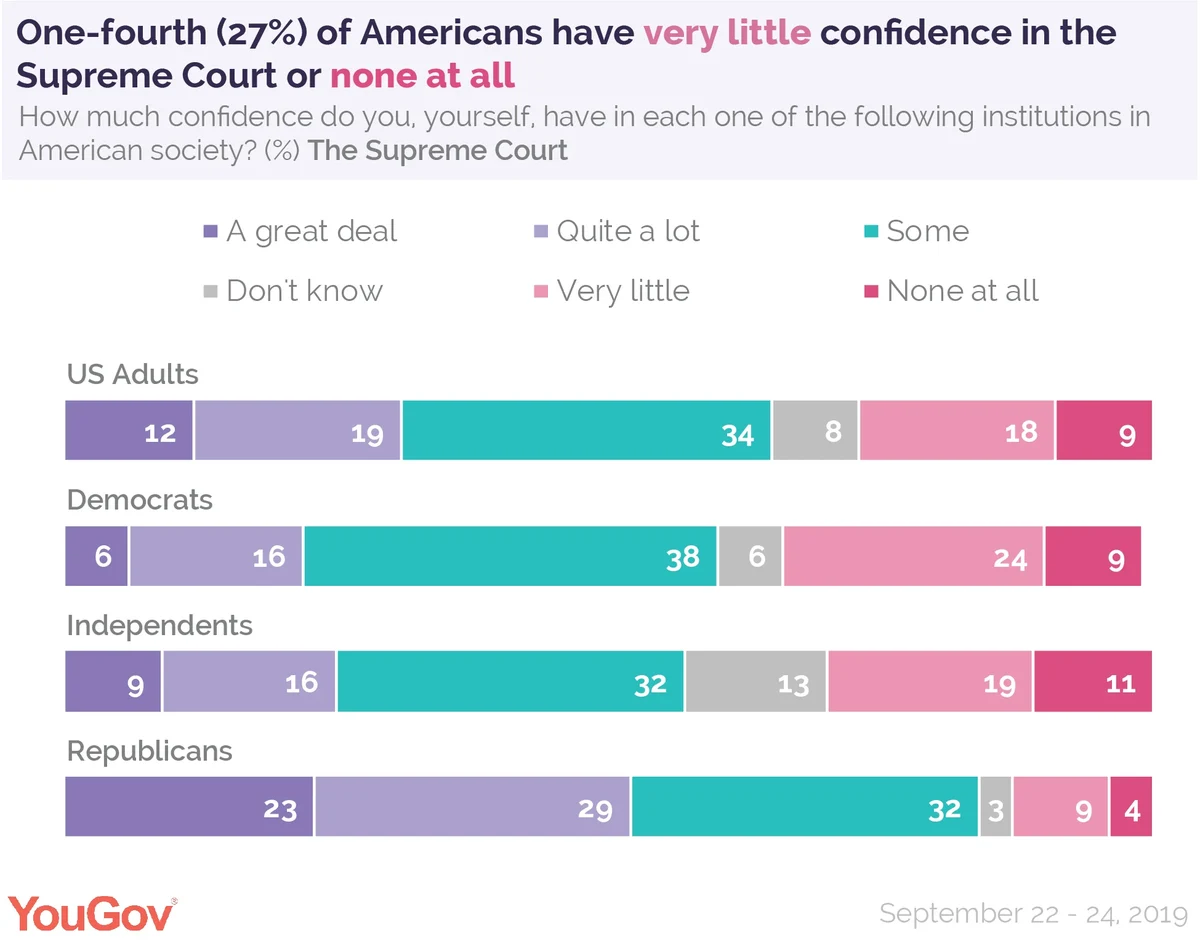The Supreme Court, which begins its 2019-2020 session with a full complement of nine justices on Monday, October 7, is viewed favorably overall by the public (48% are favorable, 33% unfavorable). In fact, the top court in the United States is looked at more favorably than Congress by both Republicans and Democrats.
But those numbers are softer when discussing confidence. More than a quarter of US adults say they have not much or even no confidence in the judicial branch, according to an Economist/YouGov poll. Much of the difference is partisan.

Confidence in the Supreme Court is less partisan than confidence in the president: nearly three in four Republicans have a lot of confidence in the president, though only one in four independents and fewer than one in 10 Democrats do.
As for the Supreme Court’s decision-making, the public isn’t sure it is impartial. One in four believes in the court’s impartiality, but 43 percent believe the court favors some groups more than others. Most Democrats describe the court as one that isn’t making impartial decisions, but even Republicans are closely divided: 43 percent of Republicans say the court is impartial, 39 percent say it favors some groups over others.
The Supreme Court is divided, too, with five justices appointed by Republican presidents and four by Democratic ones. As might be expected, partisans take very different views of each justice. But Americans overall rate eight of the nine justices favorably. The sole exception is the court’s newest justice, Brett Kavanaugh. Americans’ opinions about him are still affected by his contentious confirmation hearing and the charges of sexual misconduct by Kavanagh in his youth brought by Christine Blasey Ford. Even today, more (41%) say they believe Blasey Ford’s accusations than don’t believe them (31%).
Kavanagh and his colleague Ruth Bader Ginsburg are the best known of the justices. More than seven in 10 have opinions about each of them. Two-thirds have opinions about Clarence Thomas. Fewer than half have any opinion at all about Stephen Breyer and Samuel Alito.
Perhaps because he is less well-known, Breyer, though appointed by Bill Clinton, a Democrat, gets a marginally favorable rating from those Republicans who rate him. The only other justice with any cross-party appeal is Chief Justice John Roberts, whose rating from Democrats in this poll is almost equally as favorable as unfavorable from Democrats. After some particularly divisive judgments when Roberts voted with the Democrats on the Supreme Court, Democrats actually viewed him more positively than Republicans did.
Read the full toplines and table results from this week’s Economist/YouGov poll here.
Image: Getty














